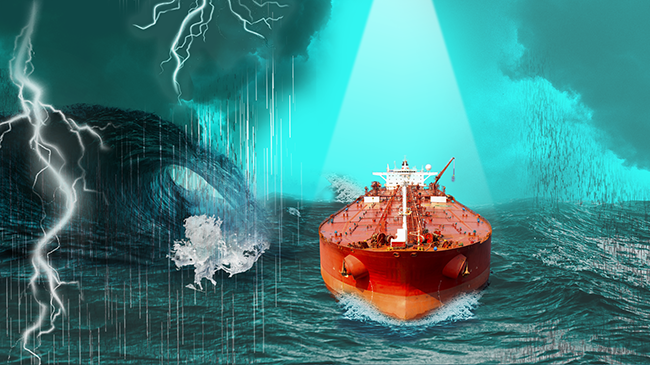Oil prices soared Monday — and continued rising Tuesday — after a group of OPEC+ members (unexpectedly) announced that they'd slash production voluntarily by more than 1 million barrels per day. It’s the crude cartel’s response to expected sluggish demand for crude triggered by the recent financial turmoil in the US and Europe as well as China’s weak economic recovery.
The lion’s share of the slash — which follows a bigger cut of 2 million bpd in October — will come from Saudi Arabia, which pledged a 500,000-bpd reduction until the end of the year, matching an earlier promise by Russia.
Why are the Saudis doing this? Officially, Riyadh says it aims to balance markets, but it clearly wants to stop the price of crude from plunging further as the global economic slowdown hurts oil demand, says Eurasia Group expert Raad Alkadiri.
Saudi Crown Prince Mohammed bin Salman has ambitious spending plans, and he wants to get ahead of the curve before prices drop too much. (Indeed, the price of benchmark Brent oil hit just $73 per barrel last month compared to over $120 in the summer of 2022.)
But there's also a US angle. The Saudis resent the Americans for dragging their feet on replenishing the US Strategic Petroleum Reserve, which the Biden administration has tapped into several times since late 2021 to bring down domestic gasoline prices from a whopping $5 a gallon to today's average $3.50.
Russia’s President Vladimir Putin, for his part, has been itching for a chance to get back at the US for leading the charge to enforce a $60 per barrel price cap on Russian oil among G-7 and EU nations. The cap is finally starting to hurt Russia's economy, although perhaps not as much as the West expected.
Japan's recent move to carve out an exemption to buy some Russian crude above the $60 limit is the first semblance of a crack in Western unity against Moscow. And the more expensive oil gets, the harder it’ll become to enforce the price cap — not to mention that US Republicans will jump at the chance to blame high gas prices on President Joe Biden.
Are the OPEC+ cuts a good or bad thing? As usual, that depends.
If you're in the US, you're probably thinking: Yikes, that’s pretty awful now that gas prices have stabilized. Even though they likely won’t reach last year’s levels, high energy costs are the last thing that Western central banks need as they fight to bring down inflation, which is extremely sensitive to wild swings in energy prices.
Yet, if you're MBS or Putin, you must keep prices above a certain level to keep your oil-dependent economy humming. We all know that the Russians will do whatever they can to push back against the $60 price cap, but Alkadiri says that "the Saudis are now showing that they are determined to keep prices up too — Washington be damned."
